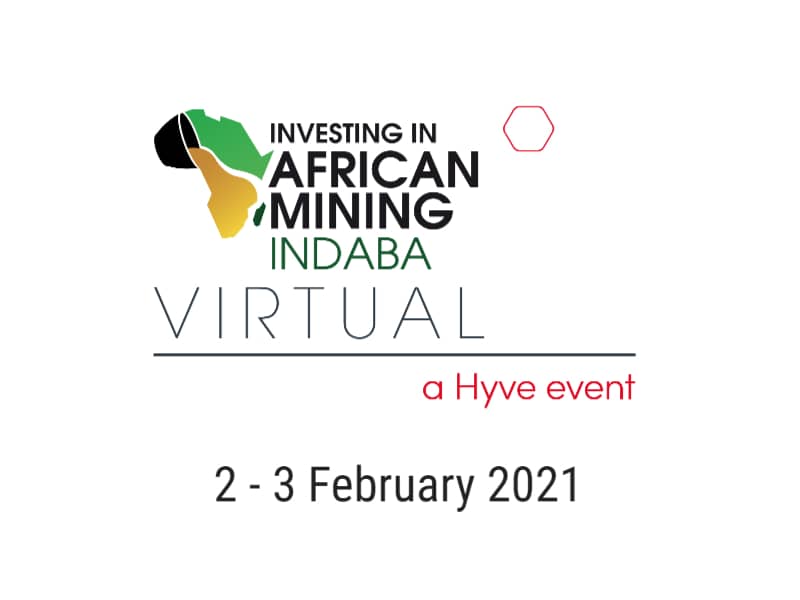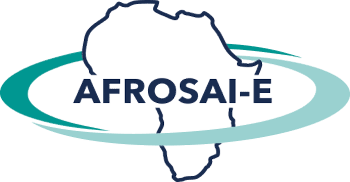
Virtual Mining Indaba emphasises resilience and regrowth for African mining
Resilience and Regrowth: adopting the new mindset for African mining was the theme for the first ever virtual Mining Indaba. This global event, which normally takes place annually in Cape Town, included multi-stakeholder discussions with Africa’s most prevalent CEOs and influential figures and investors from the public and private sector.
While the pandemic necessitated a virtual event, participation was nonetheless remarkably high. Over 6000 delegates from Africa, Asia, Australia, Europe and North America congregated online to discuss pertinent topics including gold, green metals, environmental, social and governance (ESG) investing, 4th Industrial Revolution (4IR) and private-public collaboration.
For the last 27 years, the Indaba has been dedicated to the successful capitalisation and development of mining interests in Africa. It has a unique and wide perspective of the African mining industry, bringing together visionaries and innovators from across the spectrum. It also supports education, career development, sustainable development and other important causes in Africa.
As AFROSAI-E, we attend the Indaba annually to keep up to date with the latest developments in the mining industry. This perspective is invaluable to aid us in crafting themes for our extractive industries capacity building interventions including the annual regional workshop and risk assessment.
The event included exclusive keynotes from the President South Africa, H.E. Cyril Ramaphosa, the President Botswana, H.E. Mokgweetsi Masisi, and the President Sierra Leone, H.E. Julius Maada Bio.
In his address, President Ramaphosa remarked that mining companies should strive to incorporate and actively implement environmental, social and governance standards into all aspects of their business decisions and operations.
President Maada Bio reflected on plans to create a progressive investment environment in Sierra Leone through the Minerals Policy and using the Extractive Industries Transparency Initiative (EITI) framework as a tool to guide reforms. Last year, he had indicated Sierra Leone would be revising its legal framework. It was exciting to note that one of the laws the country has since updated, is the extractive revenue law which deals with fiscal regimes.
We believe this a good step forward to address the steps in the AFROSAI-E EI value chain. Most of our risk assessment show that updating the legal framework is important to address the risk and ensure that countries are not short-changed when entering contracts.
President Masisi acknowledged that 2020 was a challenging year for the mining sector in Botswana but outlined his government’s intention to rebuild the industry and prioritise expansion into other resources aside from diamonds. He noted that tough times like these call for great collaboration among industry players, particularly government and the private sector, to ensure the rebuilding of the mining sector. He further emphasised that these challenges call for creativity and radical solutions to enhance the performance of the minerals sector.
The CEO of Anglo American also echoed this message of the importance of resilience in shaping the performance of mining companies in these unprecedented times of change.
During the panel discussion on the topic Government & Private Sector Collaboration: Resilience, Reboot and Responsible Sourcing of African Minerals, Mamadou Bady Baldé from the Extractive Industries Transparency Initiative (EITI) encouraged government participation so that transparency in the industry not only benefits certain stakeholders but citizens as well.
From a regional perspective, the key take-aways from the Indaba include:
Legal framework
- Harmonising all laws and regulations relating to mining with a view of removing regulatory duplications and inconsistencies.
- Strengthening of PFM systems.
Revenue collection
- There is need to invest in technology by revenue authorities to ensure that government collects revenue due.
Local content
- There is need to produce local content policy with clear guidelines.
- Companies should endeavour to support local Small, Medium and Micro Enterprises (SMMEs). If the procurement of local goods is not feasible, companies should clearly show why not.
Artisanal and Small-Scale Mining (ASM)
- There is growing trend to formalise ASM and include them in the policy making process.
- International standard setters are working to develop guidance on engagement with and sourcing from ASM.
- Reduce the social and environmental impact.
We continue to closely monitor global developments on the extractive industries and look forward to reflecting on these themes in our EI initiatives this year.
Learn more about the AFROSAI-E Extractive Industries value chain in our Guideline: Audit Considerations for Extractive Industries
Audit of Extractive Industries online training currently available on the AFROSAI-E Learning Portal:
- How to audit government’s performance in managing oil and gas contracts
This course targets SAI auditors from countries (worldwide) exploring and producing oil and gas. The information this course provides is especially useful for SAI auditors in countries using a Production Sharing Contract (PSC).
- CPD through Audit of Extractive Industries
Through his course learners can stay updated on emerging risks in the sector and to support continuous professional development.
- Audit of Extractive Industries
This course provides learners with understanding of SAIs’ good governance and sustainability in extractive industries and the understanding of how to apply these in financial, compliance and performance audits.
Visit www.afrosai-e-learning.com to learn more.
